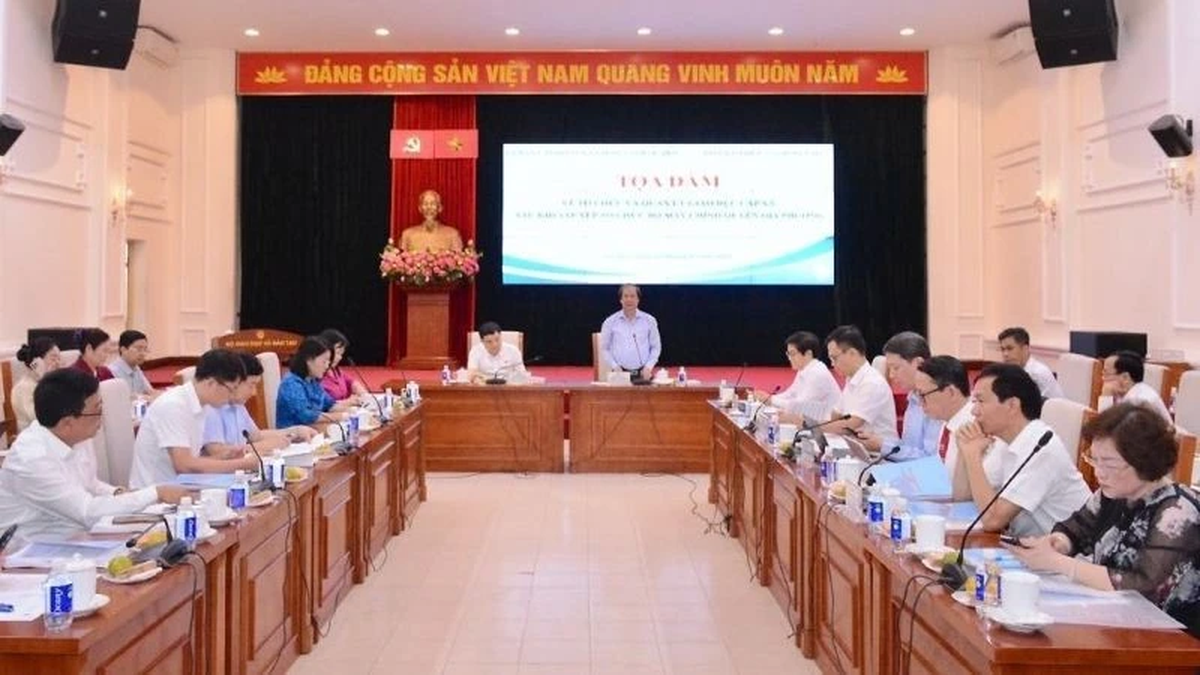On December 30, 2023, the Minister of Health issued Circular No. 30/2023/TT-BYT stipulating the list of diseases and medical conditions that can be examined and treated remotely, including the list of diseases and medical conditions that can be examined and treated remotely. Circular No. 30/2023/TT-BYT takes effect from January 1, 2024.
Accordingly, the Ministry of Health stipulates that there are 50 diseases and medical conditions that are allowed to be examined and treated remotely, such as: Obesity, acute rhinopharyngitis, chronic rhinopharyngitis, gingivitis, neck and shoulder pain, carpal-wing syndrome, low back pain, rheumatoid arthritis, degenerative spine disease, degenerative knee arthritis, hypertension, diabetes, dyslipidemia, hypothyroidism, renal failure without dialysis, bronchial asthma...
In addition, some diseases in the group of neurological and psychiatric diseases are allowed to be examined and treated remotely, including: Anxiety disorders, depression, mental disorders, tension headaches, vestibular disorders, migraines, dementia, Alzheimer's, Parkinson's...
In addition, some infectious diseases can be examined and treated remotely such as: Dengue fever without warning signs, flu, Covid-19. HIV/AIDS is also on the list of diseases that can be examined and treated remotely.
Some diseases in the field of dermatology are also examined and treated remotely, including: Viral skin diseases, allergic - immune and inflammatory skin diseases, bacterial skin diseases, fungal - parasitic skin diseases. In addition, some other diseases in the fields of ophthalmology, rehabilitation, digestion, respiratory ... are also allowed to be examined and treated remotely.
According to the Ministry of Health, remote medical examination and treatment is a form of medical examination and treatment without direct contact between the practitioner and the patient. Medical examination and treatment are performed through the transmission of sound, images and data using equipment and information technology. Remote medical examination includes interaction via online screen and reading of paraclinical results through information technology applications, indicating treatment methods and prescribing drugs; ensuring maximum safety for patients when performing remote medical examination and treatment.
Telemedicine practitioners must register with the health authority and be responsible for their diagnosis, treatment method, and prescription. Telemedicine prescriptions and prescriptions must be made on the national prescription system; patient telemedicine information must comply with confidentiality principles.
To implement remote medical examination and treatment, the Ministry of Health has deployed a remote medical examination and treatment consultation support platform (VTelehealth platform), including video conferencing function, personal electronic health record management function and health consultation support features for people via mobile applications. At the same time, connecting advanced devices and information systems to provide services that increase health benefits for people at https://vtelehealth.gov.vn. The Vtelehealth platform will be the place to integrate solutions and applications to support remote medical examination and treatment consultation nationwide.
Minh Hoa (t/h)
Source



































































































Comment (0)